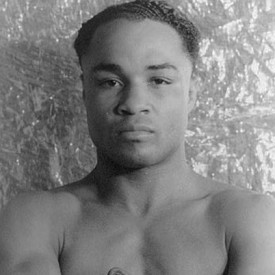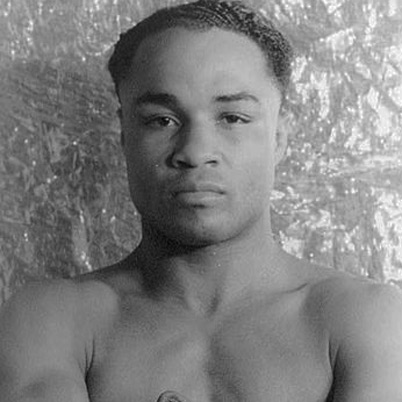We celebrate today — December 12, 2012 — the 100th birthday of one of the greatest men to don the gloves, a veritable god of the ring: Henry Armstrong.
Born in Columbus, Mississippi, but raised in St. Louis, Missouri, Armstrong’s real name was Henry Melody Jackson Jr., and he initially fought as “Melody Jackson”. But the ring nicknames that have stuck are “Homicide Hank”, “Hurricane Henry”, and “Perpetual Motion”. And for good reason.
 Armstrong’s pro debut, in 1931, was anything but auspicious — he was knocked out in the third round by someone called Al Iovino, who had a record of eight wins and seven losses. One assumes that Al never again had to pay for a drink, given that he was one of only two men (the other being Fritzie Zivic) to knock out the boxer generally considered second only to Sugar Ray Robinson.
Armstrong’s pro debut, in 1931, was anything but auspicious — he was knocked out in the third round by someone called Al Iovino, who had a record of eight wins and seven losses. One assumes that Al never again had to pay for a drink, given that he was one of only two men (the other being Fritzie Zivic) to knock out the boxer generally considered second only to Sugar Ray Robinson.
Over a mere two years, from 1937 to 1939, “Homicide Hank” (150-21-10, 101 KOs) won 46 consecutive fights, 39 by KO or TKO. It took Lou Ambers to bring this phenomenal winning streak to a close.
Armstrong is the only fighter to simultaneously hold three universally recognized titles — featherweight, welterweight, and lightweight. He took the featherweight crown from Petey Sarron in 1937 by sixth-round KO. He then took the welterweight title from Barney Ross in 1938 by unanimous decision, and won the lightweight title from Ambers a few months later by split decision.
Armstrong came within a hair’s-breadth of becoming the first in the history of the sport to win four championships (at a time when there were only eight divisions) when he took on middleweight champ Ceferino Garcia in 1940. The fight was declared a draw, but most contemporary observers thought Armstrong had won, an opinion current historians tend to share.
Best remembered as a welter, Armstrong successfully defended his title a record 18 times (winning all but four by KO or TKO) from 1938 to 1940, when he lost the crown to Zivic. Among the challengers who came up short was the remarkable Alberto Arizmendi, who only lost by decision. The aptly nicknamed “Baby” remains the youngest boxer to turn pro, which he did at the tender age of 13. In one of boxing’s great rivalries, he faced Armstrong five times, winning the first two matches. In their first bout, in 1934, Arizmendi won on points, despite breaking his left wrist in the second round.
Regardless of the loss of his welterweight championship, Armstrong continued to score regularly and consecutively. From July 1942 to January 1943, for instance, he won 12 bouts in a row, nine by KO or TKO. But following another streak of wins, from January to May 1944 — 11 victories, seven by KO or TKO — Armstrong’s performance became spotty. His last fight was a controversial loss to mediocrity Chester Slider on Valentine’s Day 1945.
Upon retirement, Armstrong became a Baptist minister, and established the Henry Armstrong Youth Foundation, which continues today as the Henry Armstrong Foundation. He died in 1988 at age 75.
Armstrong was honored by the International Boxing Hall of Fame in 1990, among the first class of inductees. Other boxing luminaries inducted that year include Joe Louis, Rocky Marciano, Muhammad Ali, and former opponent Sugar Ray Robinson, who defeated Armstrong by unanimous decision in 1943.
A compare-and-contrast is in order. Armstrong’s current counterpart is surely Floyd Mayweather Jr. Since 2009, Mayweather has been playing Santa Claus — in the sense of showing up once a year. In 1944, the year before Armstrong’s retirement (when he was 32, the same age Mayweather was in 2009), “Homicide Hank” had 19 bouts, of which he won 16, 10 by KO or TKO.
Henry Armstrong: Gone, but never to be forgotten — not by us, to whom the Sweet Science is the very air we breathe.











